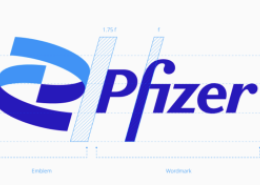Lipitor Reduced the Risk of Coronary Events by Half and Stroke by Nearly One-Third in High-Risk Patients with Type 2 Diabetes Who Experienced a Recent Stroke
(BUSINESS WIRE)--Pfizer announced today that Lipitor (atorvastatin calcium) Tablets 80 mg reduced the risk of stroke, coronary heart disease events and major coronary events in type 2 diabetes patients who had no known coronary heart disease but who had experienced a recent stroke or mini-stroke, compared with placebo. The results are from a new analysis of the landmark Stroke Prevention by Aggressive Reduction in Cholesterol Levels (SPARCL) trial, and were presented at the 67th Annual Scientific Sessions of the American Diabetes Association.
According to the National Institute of Diabetes and Digestive and Kidney Diseases, the risk for stroke is two to four times higher among people with diabetes, and heart disease and stroke account for nearly two-thirds of deaths in people with diabetes.
“People with type 2 diabetes who have had a stroke are at a much higher risk of having a second stroke, a coronary heart disease event or revascularization procedure than people without type 2 diabetes,” said Dr. Michael Welch, lead SPARCL investigator, neurologist and president of Rosalind Franklin University of Medicine & Science. “In this analysis of patients with type 2 diabetes with no known coronary heart disease, we found Lipitor to be effective in reducing these risks.”
In this pre-specified analysis (n=794), Lipitor reduced the risk of stroke by 30 percent, and coronary heart disease events and major coronary events by 51 percent, compared with placebo. Coronary heart disease events include cardiac death, heart attack, resuscitated cardiac arrest, unstable chest pain, revascularization, or chest pain requiring emergency hospitalization. Major coronary events include cardiac death, heart attack, or resuscitated cardiac arrest.
An additional analysis evaluated 781 patients in the SPARCL trial who were classified as having metabolic syndrome and who had a recent stroke or mini-stroke but no known coronary heart disease. In these patients, Lipitor significantly reduced the risk of coronary heart disease events by 43 percent compared with those taking placebo. The risk of stroke was reduced by 12 percent and major coronary events by 26 percent, but these results were not statistically significant.
“This analysis reminds us of the importance of managing patients’ overall risk factors to reduce the risk of serious complications,” said Dr. Welch.
About the SPARCL Study
The SPARCL study, published in the New England Journal of Medicine in 2006, is the only study to date evaluating statin therapy exclusively for patients with recent stroke or mini-stroke and no coronary heart disease (n=4,731). Lipitor 80 mg is the only statin to have shown stroke benefit in these patients. Lipitor 80 mg reduced the risk of an additional stroke by 16 percent and major coronary events by 35 percent compared with placebo. In a post-hoc analysis of the SPARCL trial, there was a higher incidence of hemorrhagic stroke in patients taking Lipitor 80 mg compared with patients taking placebo. Patients with prior hemorrhagic stroke at study entry appeared to be at an increased risk of hemorrhagic stroke.
In SPARCL, Lipitor was well tolerated. The rate of side effects such as elevated liver enzymes was low and consistent with the known safety profile and there was no difference in the incidence of muscle weakness or rhabdomyolysis between groups. Lipitor 80 mg is not a starting dose.
About Lipitor
Lipitor is extensively studied and the most prescribed cholesterol-lowering therapy in the world, with nearly 139 million patient-years of experience. Lipitor is supported by an extensive clinical trial program involving more than 400 ongoing and completed trials with more than 80,000 patients.
Important Safety Information
Lipitor is a prescription medication. It is used in patients with multiple risk factors for heart disease such as family history, high blood pressure, age, low HDL (“good” cholesterol) or smoking to reduce the risk of a heart attack, stroke, certain types of heart surgery and chest pain.
Lipitor is also used in patients with type 2 diabetes and at least one other risk factor for heart disease such as high blood pressure, smoking or complications of diabetes, including eye disease and protein in urine, to reduce the risk of heart attack and stroke.
Lipitor is used in patients with existing coronary heart disease to reduce the risk of heart attack, stroke, certain kinds of heart surgery, hospitalization for heart failure, and chest pain.
When diet and exercise alone are not enough, Lipitor is used along with a low-fat diet and exercise to lower cholesterol. Lipitor is not for everyone. It is not for those with liver problems. And it is not for women who are nursing, pregnant or may become pregnant.
Patients taking Lipitor should tell their doctors if they feel any new muscle pain or weakness. This could be a sign of rare but serious muscle side effects. Patients should tell their doctors about all medications they take. This may help avoid serious drug interactions. Doctors should do blood tests to check liver function before and during treatment and may adjust the dose. The most common side effects are gas, constipation, stomach pain and heartburn. They tend to be mild and often go away.
For additional product information, visit www.Lipitor.com.
Pfizer
Vanessa Aristide, 212-733-3784








